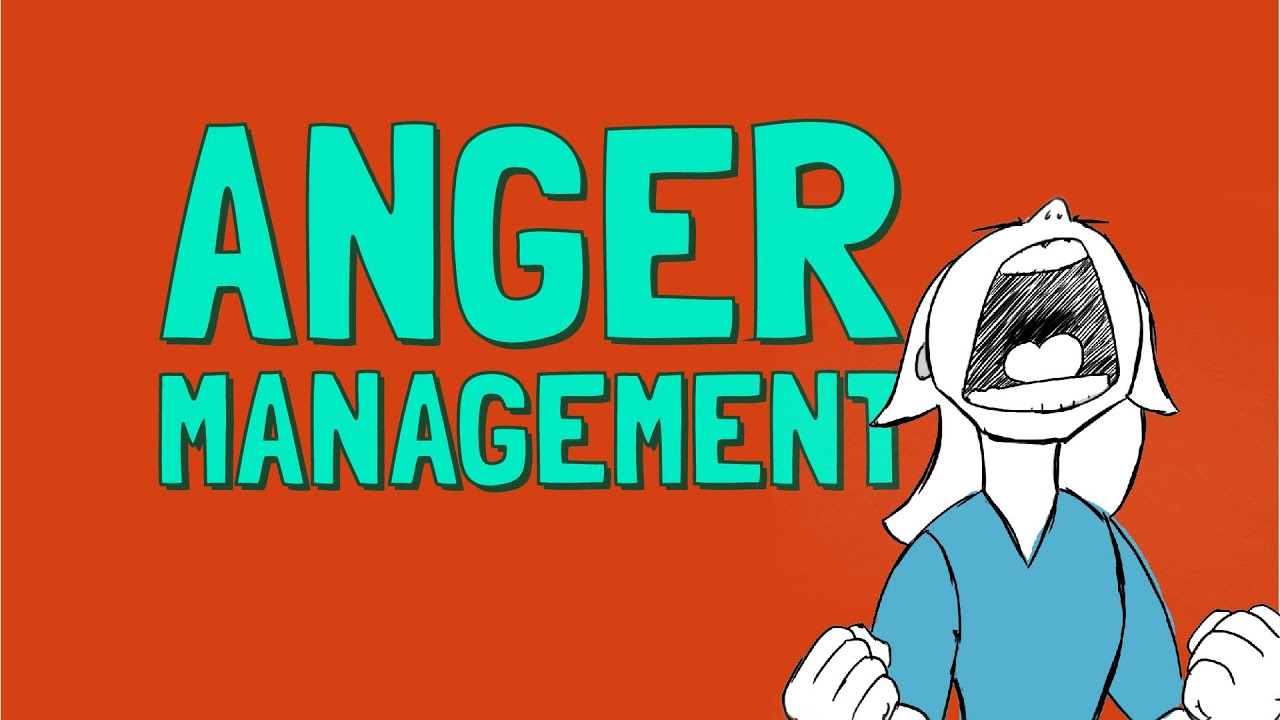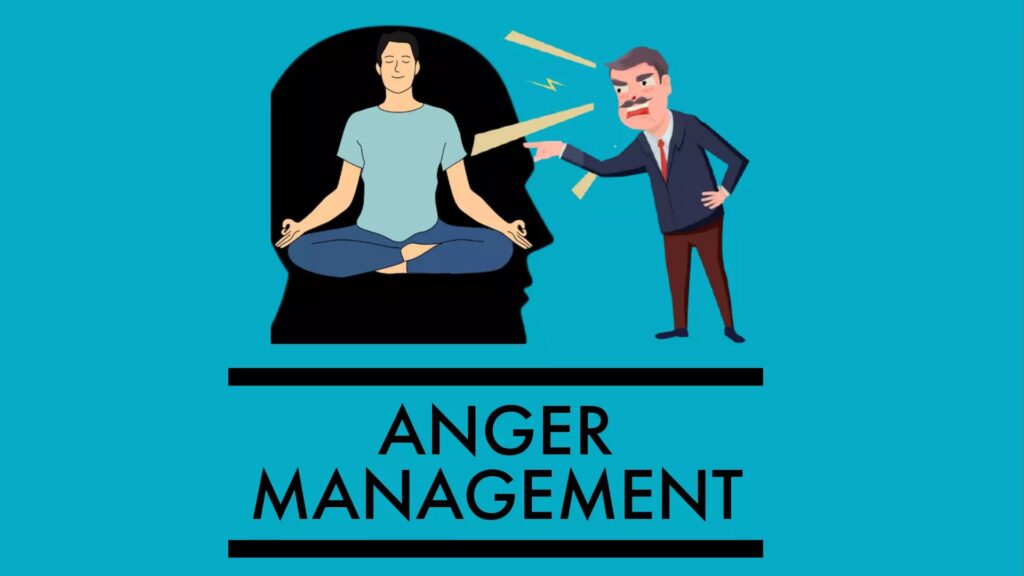Do you fly off the handle at the slightest provocation? Do you have a hard time controlling your temper? If so, you’re not alone. Anger is one of the most common emotions that people experience, and it can be difficult to manage. However, anger management is a skill that can be learned, and it is important to do so if you want to lead a happy and productive life. In this blog post, we will discuss some tips for managing your anger effectively.
Contents
What Is Anger?
 Anger is one of the most powerful emotions that we experience. It is a basic, natural emotion that we all feel from time to time. Anger can be a good thing because it can help us stand up for ourselves and protect our rights. But anger can also cause problems if it gets out of control. It also gives an unpleasant feeling.
Anger is one of the most powerful emotions that we experience. It is a basic, natural emotion that we all feel from time to time. Anger can be a good thing because it can help us stand up for ourselves and protect our rights. But anger can also cause problems if it gets out of control. It also gives an unpleasant feeling.
Negative Impacts of Anger

There are many negative impacts of anger which include:
Physical Hurt
Sometimes anger causes physical harm to yourself or others. When you get angry, you always show some physical actions, including facial expressions and body language. For instance, when someone is angry they tend to yell or shout at others as well as raise their fists in anger.
Mental Hurt
Anger can also cause mental hurt since it affects your thought process and the way you think about things. This can lead to feelings of depression and isolation from other people because they do not want to be around an angry person. When this happens often enough over time then there will be a buildup of resentment within ourselves towards our loved ones which could ultimately result in divorce or separation due to constant fighting between spouses who don’t know how to control their emotions properly during stressful situations like financial problems.
Physical Violence
Sometimes anger can lead to physical violence. This could involve hitting someone, throwing something, or breaking something. When people are physically violent it can lead to injuries or even death.
Verbal Abuse
Anger can also lead to verbal abuse which is when you say mean and hurtful things to another person. This could include yelling, insulting, or name-calling. Verbal abuse can be just as damaging as physical violence because it leaves emotional scars on the victim that can last for a long time.
How To Control Anger?
 Controlling anger is very important because of the many negative impacts that it can have on your life. There are a few things that you can do to help control your anger: Sometimes there are many issues that are out of your control. For example, you cannot change the actions of other people or what they do to you(or say about you). But there is one thing you can always control and that is how you react in situations like these when someone does something which makes us mad at them for whatever reason it may be.
Controlling anger is very important because of the many negative impacts that it can have on your life. There are a few things that you can do to help control your anger: Sometimes there are many issues that are out of your control. For example, you cannot change the actions of other people or what they do to you(or say about you). But there is one thing you can always control and that is how you react in situations like these when someone does something which makes us mad at them for whatever reason it may be.
Anger Management is one such method that can help you learn to control your tempers and take back the reigns of your lives from the anger that often tries to dictate how you behave.
What Is Anger Management?

Anger management is a method of controlling the anger that you feel. It is important to remember that anger management does not mean never getting angry or trying to suppress your feelings about something. Rather, the aim of this approach is for focusing anger in a more positive and constructive way. Anger management can help you to learn how to deal with your feelings of anger in a healthy way so that they do not have such a negative impact on your life.
Sometimes these classes are court-ordered, but there are many reasons why people might choose to attend anger management classes. Some of these reasons include: wanting to learn how to deal with their anger in a healthier way, wanting to improve their relationships with others, or needing help managing emotions that can lead to explosive anger outbursts.
Different Steps of Anger Management

There are many different steps of anger management. Some of the most common ones include:
Step 1. Identifying Triggers
One way to start managing your anger is to identify the things that trigger it. This could be something like a certain person or situation, or it might be a feeling such as frustration, embarrassment, or disappointment. Once you have identified your triggers, you can work on strategies for dealing with them in a healthier way. This step also includes identifying the physical symptoms that you experience when you get angry, such as a racing heart or tightness in your chest.
Step.2 Admitting Your Mistakes
Sometimes admitting your mistakes is one of the hardest things to do, but it is an important step in managing your anger. When you admit that you were wrong, it can help to diffuse the anger and allow for a more productive conversation. It also helps to show that you are willing to learn from your mistakes and work on improving yourself.
Step. III Taking Time-Out
When you feel like anger is starting to take over, one of the best things you can do is take a time-out. This could involve leaving the situation that is causing you to get angry or taking some time for yourself to calm down. By giving yourself some space, it will allow you to approach the situation in a more rational way and likely avoid doing or saying anything that you might regret later.
Step IV Communicating Effectively
Anger can often lead to communication breakdowns. When this happens, it can be hard to resolve the issue at hand. One way to help prevent this from happening is by communicating effectively from the start. This means listening to the other person and asking questions if you need clarification on something they have said. It also involves being clear about what outcome you hope to achieve in this situation so that everyone involved knows there are expectations for how things will go forward-moving forward into future interactions as well.”
Step 5. Keeping Anger Diary
It can be helpful to keep track of your anger by writing about it in a diary. This can allow you to see patterns in your behavior and identify the situations or people that tend to make you angry. It can also help you to notice when you are starting to feel angry so that you can take steps to manage your anger before it gets out of control.
Step6. Managing Your Emotions
Anger often stems from other emotions such as frustration, hurt, or disappointment. Learning how to manage these emotions can be an important part of managing your anger. For example, if you are feeling frustrated with a situation at work then it might help to take a break and go for walk around the block before returning so that you can approach things in a more positive way when you come back.
Step VII Apologizing
Apologizing is one of those things that most people don’t want to do but it’s an important step in managing your anger. When you apologize, even if it was not entirely your fault what happened, this allows both parties involved some closure from whatever caused them to upset or hurt feelings initially.
Different Techniques of Anger Management

There are many different techniques of anger management. Some of the most common ones include:
Taking It Out
Sometimes if people don’t have an outlet for their anger, it can lead to destructive behavior. This could involve things like yelling at or hitting someone, damaging property or even driving recklessly. If you find that this is happening often then it might be helpful to find an activity such as boxing, running, or weightlifting that will allow you to safely release your anger.
Self-Talk
This involves talking to yourself in a positive way and trying to rationalize the situation that is making you angry. For example, if you are feeling frustrated with a project at work, tell yourself that it’s not the end of the world and you will get through it. This type of self-talk can help to diffuse the anger before it gets too out of control.
Yoga and Meditation
Both yoga and meditation can be helpful in managing anger. Yoga can help to stretch out the body and release any tension that might be building up, while meditation can allow you to focus on your breath and calm the mind. Sometimes these practices can help you to see the situation more clearly and find a resolution.
Counseling or Therapy
If you feel like your anger is out of control and is impacting your life in a negative way, then it might be helpful to seek counseling or therapy. This type of treatment can provide you with tools to manage your anger in a healthy way and improve your relationships with others. These also make it easier for you to control your temper, resolve conflicts peacefully, and live happily.
Humor
Humor is one of the best ways to deal with anger. When you can laugh at a situation, it takes the power away from it and makes it seem less threatening. Laughter is also a good way to release tension and stress so that you can calm down. Sometimes these also make it difficult for you to control your temper, resolve conflicts peacefully, and live happily.
Fitness
Exercise can help release endorphins that make us feel good and provide an outlet for our anger. This can be a helpful way to diffuse anger before it turns into rage or violence against someone else. Sometimes it also gives one a feeling of power and control, which can be helpful in managing anger.
Good Food
Food is also a very effective way to deal with anger. When we eat, our brains release chemicals called endorphins that make us feel good and provide an outlet for our anger.
Good Sleep
Sleeping can also be helpful in managing anger because when you are tired, it is harder to control your temper or resolve conflicts peacefully. Getting a good night’s rest will help you stay calm so that things don’t get out of hand as quickly or easily. Sometimes these also make it easier for you to control your temper, resolve conflicts peacefully, and live happily.
Benefits of Anger Management

There are many benefits of a person who knows how to manage their anger. Some of these include:
Better Relationships
People with good anger management skills have better relationships because they are able to control their emotions in stressful situations and don’t let things get out of hand as quickly or easily. It also makes it easier for them to communicate effectively and resolve conflicts peacefully.
Less Stress
When you can manage your anger, it means that there is less stress in your life. This is because the anger is no longer taking up all of your energy and causing you to be constantly stressed out. You will also have more time and mental space to focus on other things that are important to you.
Improved Mental Health
Anger can often lead to depression, anxiety, or other mental health issues if it isn’t dealt with properly. However, when these issues are managed correctly, they can actually improve one’s mental health overall. It can also make it easier for someone who has been struggling with depression or anxiety to start feeling better about themselves and life in general.
Better Physical Health
Anger can have a negative impact on physical health as well, so managing this emotion effectively can help improve overall wellness too! When you control your emotions instead of letting them get out of hand quickly or easily, then there will be less stress in your body which means fewer aches and pains from tension build-up over time. This also makes it easier for people who are dealing with chronic illnesses such as cancer treatment side effects (e.g., nausea) to cope better because they aren’t constantly thinking about their illness every second of the day.
Creates Strong Bonds
Sometimes anger can create strong bonds between family members and friends. When people are able to manage their anger, they may feel more comfortable talking about things that have upset them in the past or present with these relationships because there is no longer a threat of escalating into an argument over something trivial like politics or religion.
Gives You Sense Of Control
When you can control your anger, it gives a sense of power and control. This is especially important when dealing with situations that feel out of our hands such as illness or death in the family; knowing how to handle these difficult emotions may help reduce feelings like helplessness which often leads people down dark paths towards depression and suicidal thoughts.
Conclusion
Anger is one of the most powerful emotions humans experience. It can lead to incredible acts of bravery and self-sacrifice, as well as hate crimes, physical abuse, and murder. Anger is a part of human nature; it is an expression of our instinct for survival that becomes dangerous when we are unable to control it.
A certain amount of anger in your life is normal — but when you find yourself becoming angry quickly and losing control over the emotion, or you see that your constant irritation has put stress on relationships with those close to you, then it’s time to make some changes. If this sounds like something that could apply to you right now, start by learning more about what makes people angry and how they cope with their own feelings in different situations.
A Word From Therapy Mantra
Your mental health — Your psychological, emotional, and social well-being — has an impact on every aspect of your life. Positive mental health essentially allows you to effectively deal with life’s everyday challenges.
At TherapyMantra, we have a team of therapists who provide affordable online therapy to assist you with issues such as depression, anxiety, stress, workplace Issues, addiction, relationship, OCD, LGBTQ, and PTSD. You can book a free therapy or download our free Android or iOS app.


